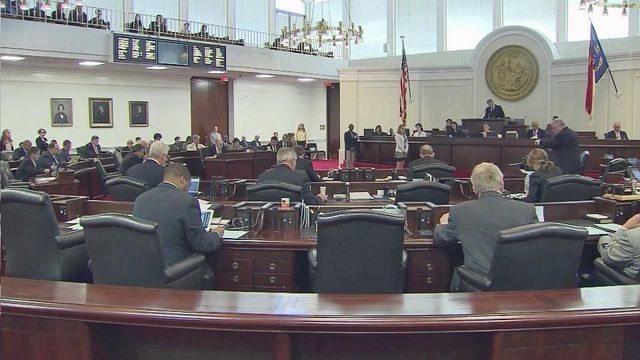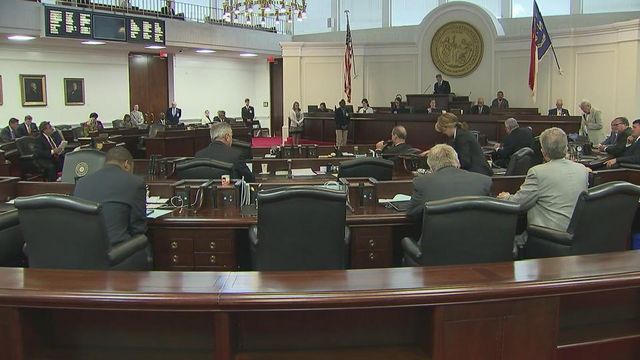'Sanctuary city' ban, food stamp crackdown passes Senate
The N.C. Senate gave tentative approval Thursday to a proposal banning local "sanctuary" ordinances and limiting food assistance for able-bodied but unemployed adults.
Posted — UpdatedThe measure picked up additional provisions along the way, including a ban on the enactment of "sanctuary city" ordinances by any local governments in North Carolina. Bill supporters say there are "seven or eight" in the state, but named only Durham, Carrboro, Chapel Hill, Chatham County and Charlotte – cities Sen. Jerry Tillman, R-Randolph, referred to as "liberal bastions."
"All that is is a welcome mat to come on in if you’re a criminal and you’re illegally here and whether you’ve been deported or not, just come on, the door’s open," Tillman said. "I would be ashamed to be a city that had a policy like that. What in the world is wrong with reporting criminals?
"Any city that would do that needs their charter revoked," he said, adding that he will work to add financial penalties to the bill for cities that defy the ban.
"You’re looking to revoke the charter for the city of Charlotte?" asked Sen. Joel Ford, D-Mecklenburg.
"More than happy to if I could," Tillman shot back.
No more exemptions to food stamp work requirements
Another section added to the bill would ban the state Department of Health and Human Services from seeking waivers to extend food assistance for able-bodied, unemployed adults without children.
The state's current waiver lasts through Dec. 31. DHHS spokeswoman Alexandra Lefebvre said the department will phase work requirements back in for food stamp recipients in 23 counties, where about 50 percent of the state's food stamp caseload lives. The state's remaining counties will be phased in during the year, she said.
The bill would block the state from seeking any such waivers in the future.
The benefit is about $32 a week, paid for by the federal government, not the state.
Sen. Norm Sanderson, R-Pamlico, said cutting off extensions will encourage jobless people "caught up" in assistance programs to go out and look for work.
"When this goes into effect, you’re going to see a lot of them either go and get that 20-hour-a-week job, or they're going to enroll in some kind of job education," Sanderson predicted.
Bryant tried to amend the bill to remove the food assistance restriction, but her amendment failed on party lines.
Sen. Ralph Hise, R-Mitchell, said those who need the help for longer than 90 days can meet the work qualifications by volunteering instead.
The measure passed its initial vote along party lines, 32-11, with Sen. Josh Stein, D-Wake, joining Republicans to support it. The final Senate vote is scheduled for Monday evening. After that, it returns to the House for concurrence.
Related Topics
• Credits
Copyright 2024 by Capitol Broadcasting Company. All rights reserved. This material may not be published, broadcast, rewritten or redistributed.






